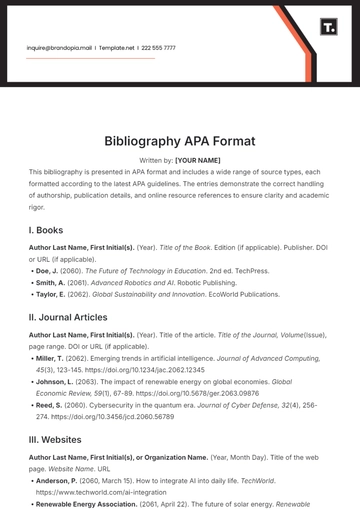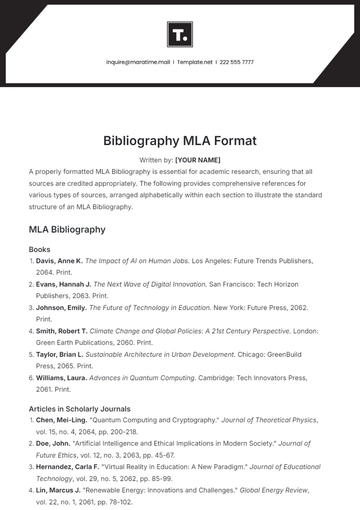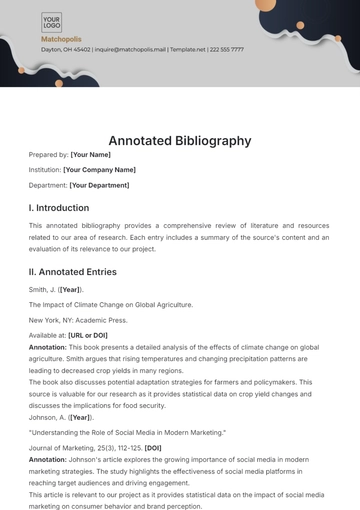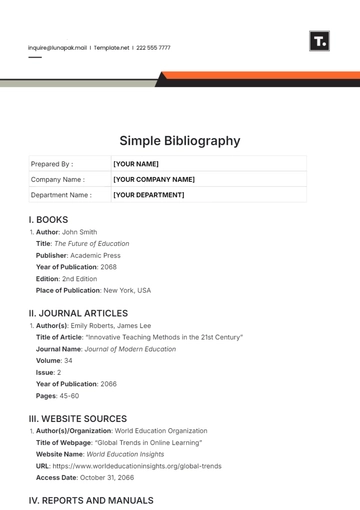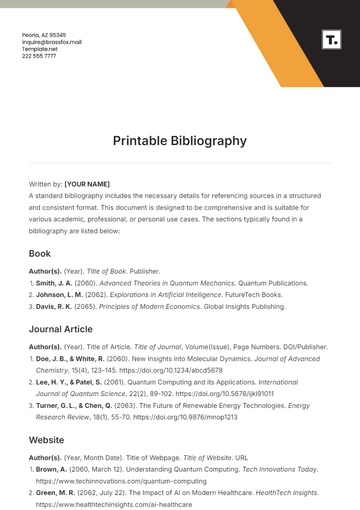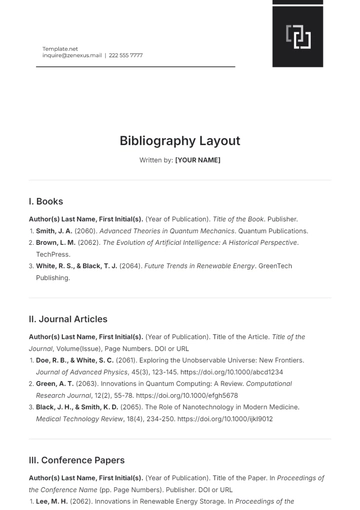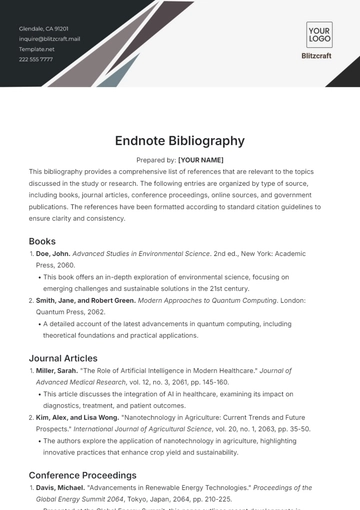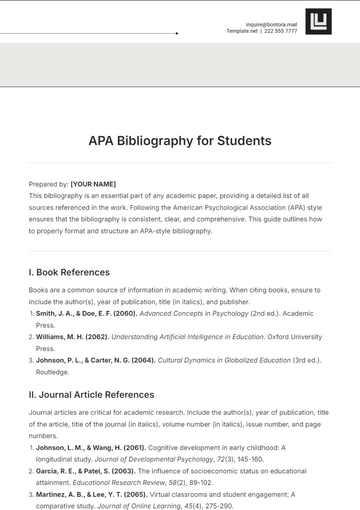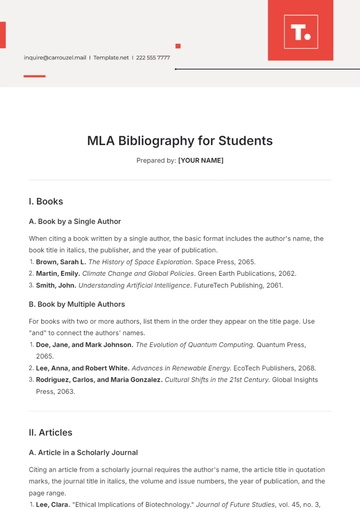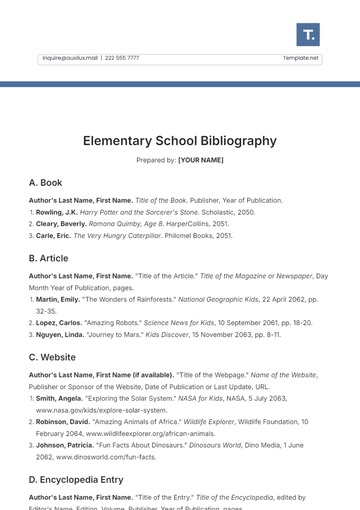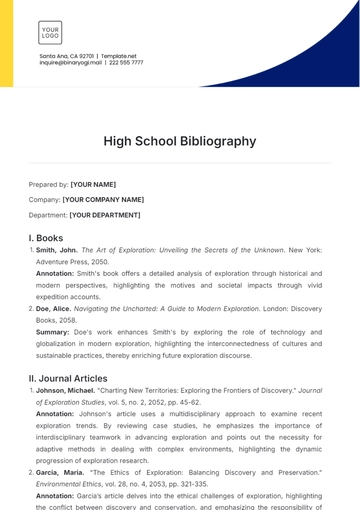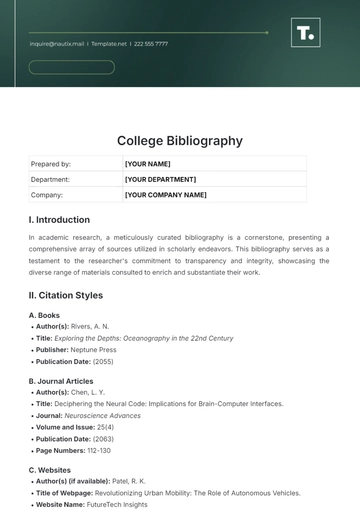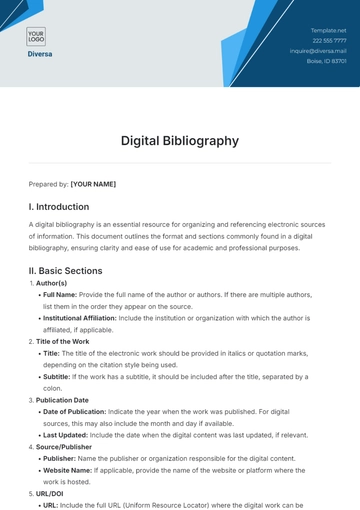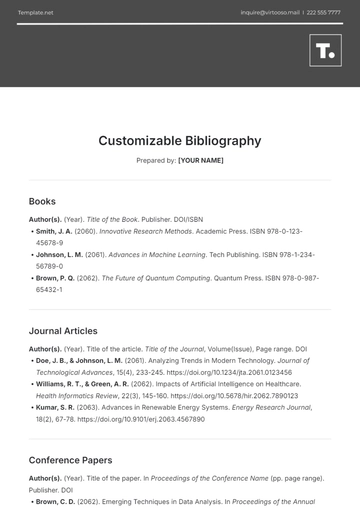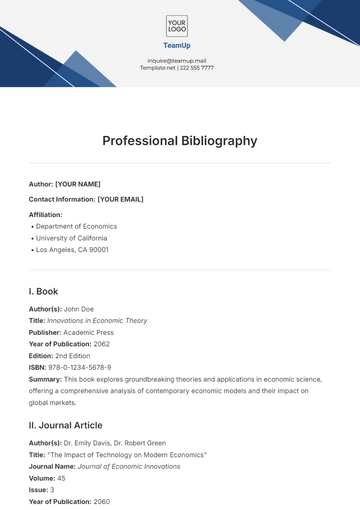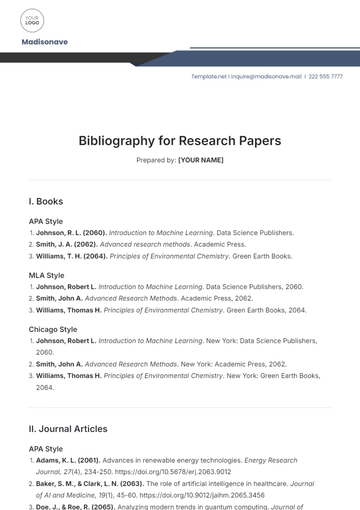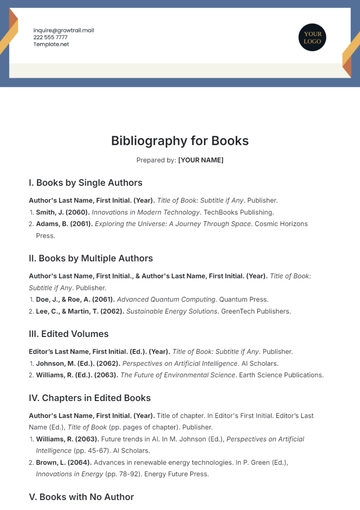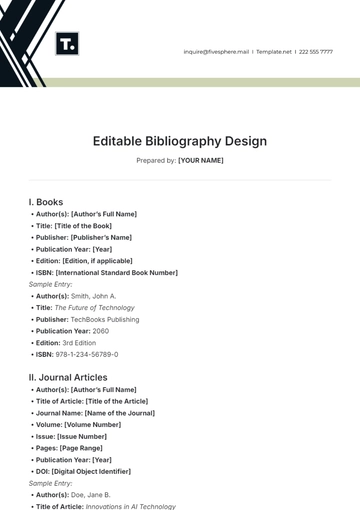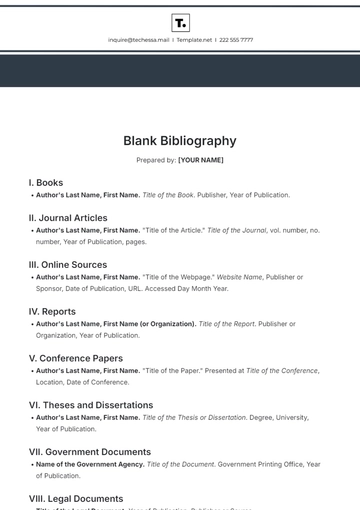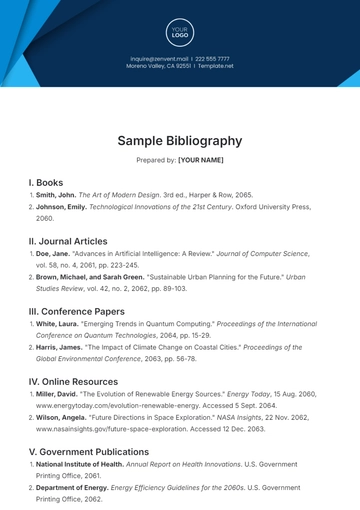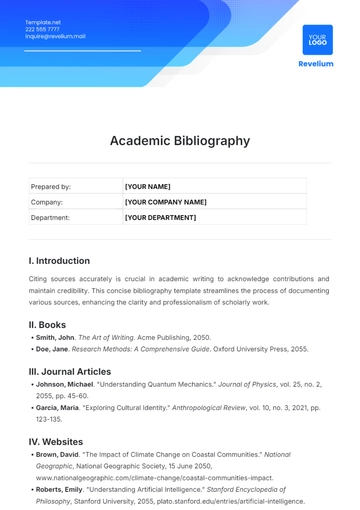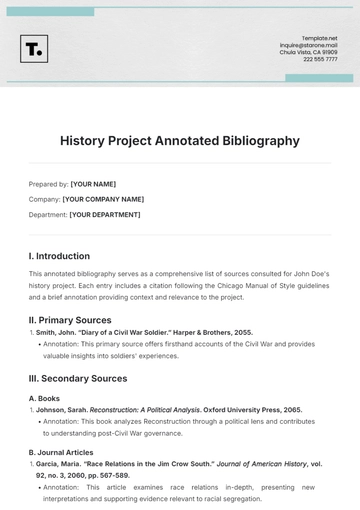Free OSCOLA Bibliography
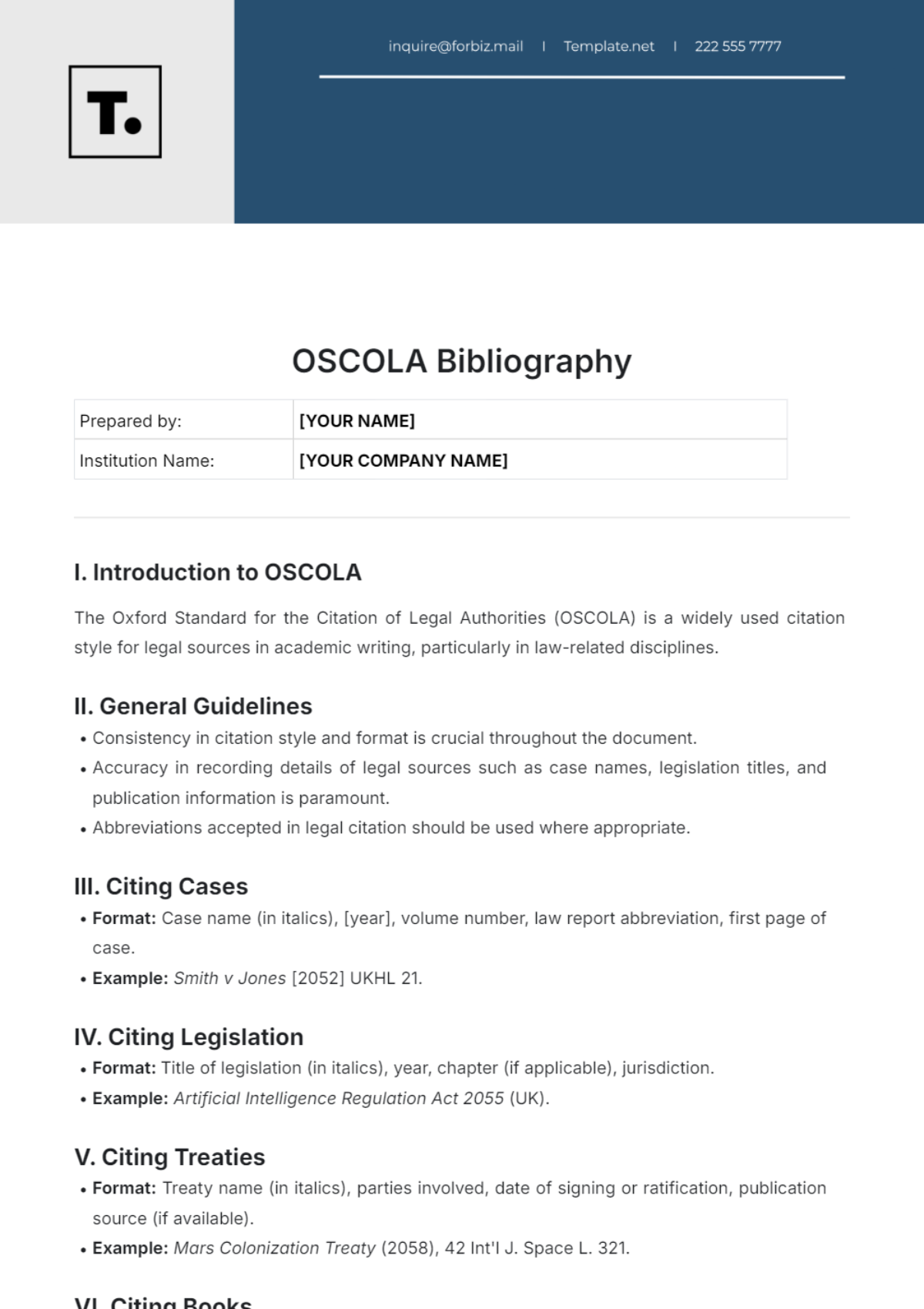
Prepared by: | [YOUR NAME] |
Institution Name: | [YOUR COMPANY NAME] |
I. Introduction to OSCOLA
The Oxford Standard for the Citation of Legal Authorities (OSCOLA) is a widely used citation style for legal sources in academic writing, particularly in law-related disciplines.
II. General Guidelines
Consistency in citation style and format is crucial throughout the document.
Accuracy in recording details of legal sources such as case names, legislation titles, and publication information is paramount.
Abbreviations accepted in legal citation should be used where appropriate.
III. Citing Cases
Format: Case name (in italics), [year], volume number, law report abbreviation, first page of case.
Example: Smith v Jones [2052] UKHL 21.
IV. Citing Legislation
Format: Title of legislation (in italics), year, chapter (if applicable), jurisdiction.
Example: Artificial Intelligence Regulation Act 2055 (UK).
V. Citing Treaties
Format: Treaty name (in italics), parties involved, date of signing or ratification, publication source (if available).
Example: Mars Colonization Treaty (2058), 42 Int'l J. Space L. 321.
VI. Citing Books
Format: Author(s), title (in italics), edition (if applicable), publisher, year.
Example: Johnson, M., Future of Legal Technology, 2nd ed (Oxford University Press, 2060).
VII. Citing Articles
Format: Author(s), title of article (in single quotation marks), volume number, journal name (in italics), first page of article, year.
Example: Brown, R., 'Ethical Implications of Genetic Engineering in Criminal Law', 35 Journal of Law and Genetics 87 (2055).
VIII. Additional Guidelines
Pinpoint Citations: Include pinpoint references for specific sections or paragraphs within legal sources.
Cross-Referencing: Utilize cross-referencing where applicable to enhance readability and accessibility.
Online Sources: Provide URLs or DOI numbers for online sources where available.
- 100% Customizable, free editor
- Access 1 Million+ Templates, photo’s & graphics
- Download or share as a template
- Click and replace photos, graphics, text, backgrounds
- Resize, crop, AI write & more
- Access advanced editor
Discover the OSCOLA Bibliography Template on Template.net. Tailored for legal professionals and scholars, this editable resource simplifies the creation of bibliographies in the Oxford Standard for Citation of Legal Authorities (OSCOLA) style. Seamlessly customize and adapt your citations to adhere to OSCOLA guidelines. Achieve accuracy and consistency effortlessly with this versatile and customizable template, enhancing your legal writing endeavors.

